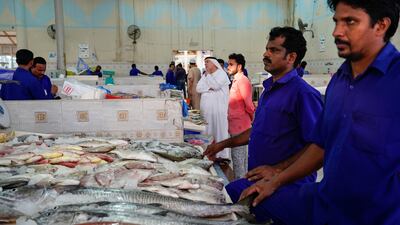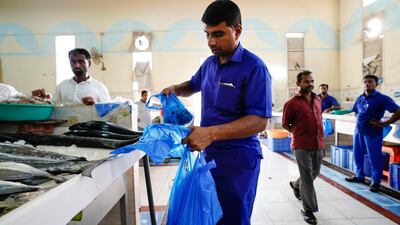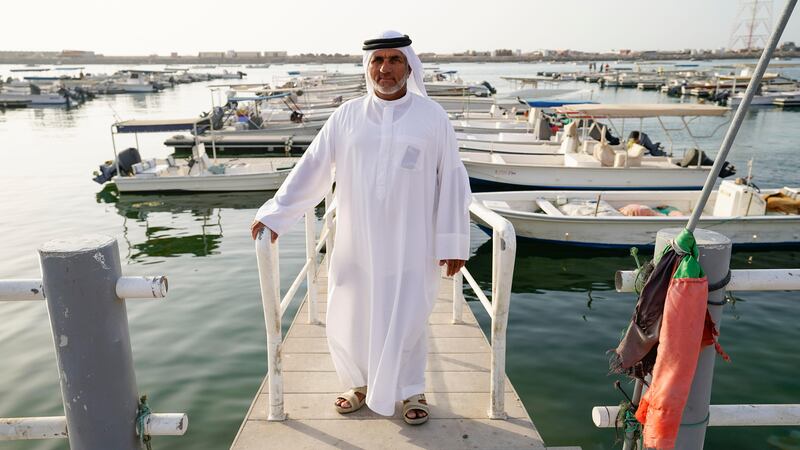Ahmad Al Shahi, like many fishermen in Ras Al Khaimah, has been waiting a long time for his working conditions to improve. However, the 60-year-old doesn't complain, instead he revels in the new facilities on offer at ports across the northern emirate.
"It's the kind of development that we wanted to see for years, and we appreciate all the efforts and the directives of Sheikh Mohammed bin Zayed, Crown Prince of Abu Dhabi, in launching this project as everyone will benefit from it," said Mr Al Shahi.
The Dh190 million development plan has seen eight fishing ports in RAK get a makeover, with new facilities designed to make fishermen more satisfied and productive.

A total of 1,400 Emirati fishermen working in the eight fishing ports - Shaam, Al Gir, Jalilah, Khor Khwair, Al Rams, Al Muairied, Al Jazera Al Hamra and RAK city - are benefitting from the government plan, which includes the addition of 1,520 docking spaces, 500 warehouses to store fishing equipment and a fishermen’s majlis for each port.
Labourer accommodation that houses 200 workers has been built at each port along with a boat maintenance workshop and ice factory with a capacity of 40 tonnes per day. The ports at RAK city, Al Muairied, Jalilah and Shaam have also been equipped with filling stations, in coordination with ADNOC Distribution Company.
“We didn’t have a proper place to dock our boats before so it saves us lots of effort and time, while the accommodation made our workers much happier and energetic as it has clean facilities with all services and amenities and we pay only Dh150 per month on each worker,” said Mr Al Shahi.
“The majlis has brought us together as we spend time every day after sunset talking and discussing all sorts of issues and plan for future events in a big, air-conditioned room with comfortable chairs and a TV.”
Other fishermen also welcomed the project, various stages of which reached completion within the last three months, as it has solved many of their daily problems, though they still feel they are too constrained when it comes to their catch.

Malallah Al Shahi, a 53-year-old fishermen, said that the development work is recognition and reward from the Government for the work people in his industry does.
“We serve the country by doing what we do and we deserve such recognition that can help us through our daily struggle to keep the business going, and it's much appreciated by all of us,” said Mr Al Shahi.
“But we still face financial problems with the current fishing plans and regulations; sometimes we see it unfair and it harms our profession and the government should take our opinion as experts in this field when issuing such laws.”
Mr Al Shahi said that the ban on Al Sheri and Al Safi fishing has made them lose about Dh40,000 each month of the ban, from March 1 to April 30.
“They should also consider reducing the amount of fines on fishermen who accidentally catch a fish in a banned season or illegally,” he said.
“If the fisherman throws the dead fish back into the sea, they will consider it an act of pollution and if he brings it back to the shore, he will be fined from Dh1,000 to Dh5,000. There should be a solution for this issue and they need to find one.”
Ahmad Maki, a 73-year-old fisherman, suggested that a compensation plan for fishermen should be in place during periods when fishing for certain types of fish is banned.
“It costs us a lot as we need to pay workers’ salaries during that low season, which used to be our favourite period, where we catch many fish and earn good amounts of money,” said Mr Maki.
“For me, it doesn’t make any sense as all the neighbouring countries can catch all kinds of fish and stopping us will not keep the fish alive, as others will just catch them.”






